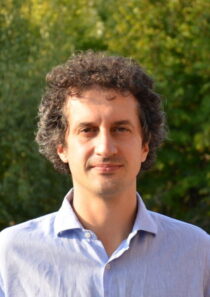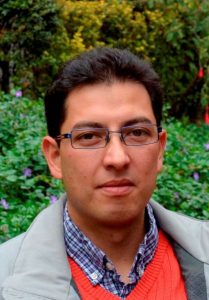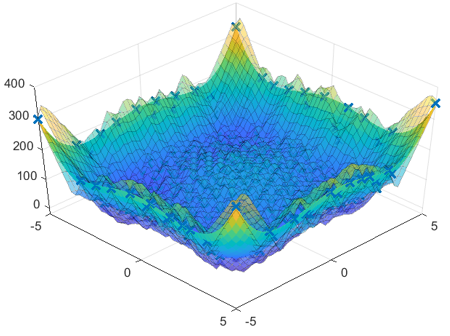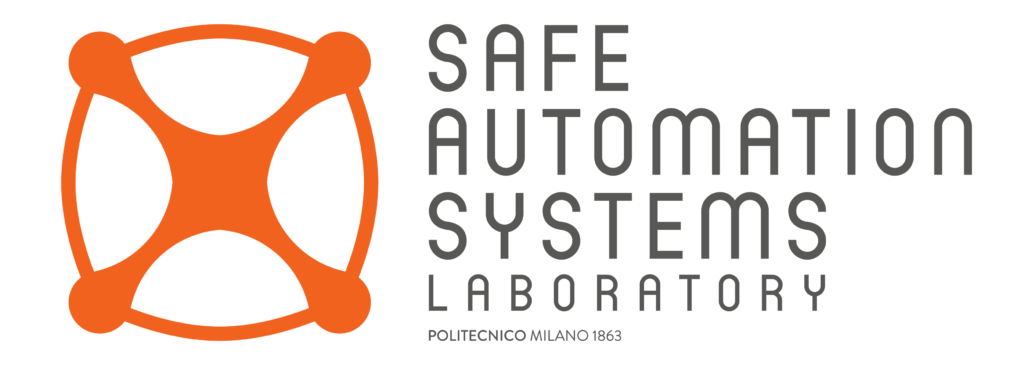Workshop “Concurrent learning and optimization for nonconvex constrained problems” @ ECC2023 in Bucharest
Venue, date, and registration
The workshop will be held on June 13th, 2023, at the European Control Conference 2023 in Bucharest, Romania. Venue and registration details here. The workshop is organized in the framework of the project ELO-X.
Workshop length
One full day
Speakers and Organizers
Prof. Lorenzo Fagiano
Prof. Fredy Ruiz
Dr. Lorenzo Sabug, Jr.
Politecnico di Milano, Italy
Intended audience
The workshop is intended for both Ph.D. students and experienced researchers from both academia and industry. The first part will set the main fundamental concepts needed to fully get familiar with the SMGO approach, its strengths and limits.
Highlights
- A tailored, seamless 1-day experience to efficiently and effectively get acquainted with approaches to simultaneously learn and search for global solutions to general black-box problems from data;
- The morning session describes the main fundamental challenges and methods, and introduces a new algorithm to deal with the considered problem class – SMGO, Set Membership Global Optimization;
- The main afternoon session is hands-on and interactive: the participants will be challenged with solving constrained black-box problems with SMGO and other methods (e.g., Bayesian Optimization), thus having the possibility to compare their performance and merits;
- The last session points out current research directions and open challenges.
Overview
Black-box optimization problems arise in many practical scenarios, such as engineering design, management of complex processes, and control systems tuning. A common aspect of such problems is that the objective function is difficult to model mathematically in an accurate way and is rather evaluated using (possibly time-consuming) experiments or detailed simulations. Typically, these problems also feature several local minima, and they may be affected by uncertainty/disturbances, so that the value of the cost may change within certain intervals for the same value of the decision variables. These aspects call for global black-box optimization techniques, aiming to solve these problems by attempting to simultaneously learn the objective function and optimize it. Examples include swarm-based approaches [1], Mesh Adaptive Direct Search (MADS) [2-4], kriging-based methods [5-8] and Bayesian optimization (BO) [9,10]. Almost all such techniques try to balance exploitation and exploration, to achieve fast convergence and coverage of the search space, respectively. Moreover, many black-box problems also involve the satisfaction of one or more constraints, deriving for example from the fulfillment of norms and standards, the achievement of a minimum performance threshold, or state constraints. In the literature, most black-box optimization approaches assume that the constraint functions are known a priori and either analytically or numerically tractable, such as upper and lower bounds on each decision variables, convex sets, or nonlinear but known and differentiable constraint functions. However, there are problems where the constraint values are also black boxes, leading to uncertain and possibly disconnected feasible sets. Only a few approaches can deal with such problems.
In the described context, the objectives of this workshop are:
- To provide an overview of black-box optimization problems and the main approaches to deal with them, by simultaneous learning and optimization;
- To introduce the Set Membership framework and describe a novel global optimization method based on it, named Set Membership Global Optimization (SMGO) [11-13];
- To carry out an interactive, hands-on experience with the workshop participants, implementing SMGO and other black-box approaches for either academic problems provided by the speakers or their own problems of interest.
Content and Schedule
The workshop will last one full day, approximately 3 hours in the morning and 3 hours in the afternoon, plus intermediate breaks, and the lunch break. The tentative timings and content are detailed below.
9:00-9:40
Black-box optimization: problem formulation and state of the art (F. Ruiz)
Examples of black-box optimization problems with specific focus on control engineering (e.g., closed-loop tuning of linear, nonlinear, and predictive controllers; concurrent design of system and control; hyper-parameter selection in learning approaches). Mathematical abstraction of the problem and review of the distinctive aspects; main challenges involved and main working assumptions with and without constraints. Overview of families of solution approaches and related advantages and disadvantages, including swarm-based approaches, direct search, and Bayesian optimization.
9:40-10:30
The Set Membership (SM) estimation framework and its application to build surrogate models in black-box optimization (L. Fagiano).
Fundamental concepts and results in SM estimation: unfalsified element set, feasible solution set, uncertainty bounds, optimal and interpolatory algorithms, (in-)validation of prior assumptions. Approximation of the cost and constraint functions with SM techniques: estimation of the Lipschitz constant and noise bound, upper and lower bounds, central estimate.
10:30-11:00
Break
11:00-12:00
Set Membership Global Optimization (L. Sabug).
Description of the SMGO algorithm for unconstrained and constrained problems: exploration and exploitation sub-routines, data structure and estimates’ update, main tuning parameters. Theoretical convergence properties, computational and memory cost, implementation aspects.
12:00-13:00
Lunch
13:00-15:00
Hands-on session (all speakers).
Practice session on using SMGO to cast and solve non-convex black-box optimization problems. The hands-on session will be carried out by the participants using their own laptops in the MATLAB environment, employing the SMGO toolbox. To adapt to various possible levels of initial confidence and expertise on the topic, participants will have the choice of whether to solve examples of problems provided by the speakers, or their own optimization problem of interest.
15:00-15:30
Break
15:30-17:00
Industrial application, extensions, challenges, and research directions (all speakers).
Use of SMGO for on-line control system tuning of a semi-automatic clutch; time-varying black-box optimization problems; cooperative and distributed black-box optimization; multi-objective black-box optimization; non-constant evaluation time/cost of the objective and constraint functions.
Speakers

Lorenzo Fagiano received the Ph.D. degree in Information and Systems Engineering in 2009 from Politecnico di Torino, Italy. From 2010 to 2013 he held positions at UC Santa Barbara and ETH Zurich. From 2013 to 2016 he was with ABB Switzerland. He is currently associate professor of automation and control engineering at the Politecnico di Milano, Italy. He is recipient of the 2019 European Control Award, of the Mission Innovation Champion award 2019 for Italy, and of the 2011 IEEE Transactions on Control Systems Technology Outstanding Paper Award.

Fredy Ruiz received the Ph.D. degree in Information and Systems Engineering in 2009 from Politecnico di Torino, Italy. He was Assistant (2010-2014) and Associate (2015-2019) professor at Pontificia Universidad Javeriana, Colombia, where he also served as Head of the Electronics Engineering Department between 2014 and 2016. Fredy is currently Associate professor of automation and control engineering at the Politecnico di Milano, Italy. He was a Fulbright visiting scholar at the University of California, Berkeley in 2013 and Visiting professor at the Politecnico di Torino in 2018.

Lorenzo Sabug, Jr. received the Ph.D. cum laude in Information Technology (Systems and Control) at Politecnico di Milano in 2023, and the M.Sc. in Electrical Engineering from RWTH Aachen in 2016. From 2016 to 2019, he was part of the team that developed the Philippine microsatellite Diwata-2 (PO-101), operational in orbit since 2018. He is currently a postdoctoral researcher at Politecnico di Milano.
References
[1] H. Garg, “A hybrid GSA-GA algorithm for constrained optimization problems”, Information Sciences 478, 499–523, 2019
[2] C. Audet and J.E. Dennis, “Mesh Adaptive Direct Search Algorithms for Constrained Optimization”, SIAM J. Optim. 17(1), 188–217, 2006
[3] S. Le Digabel, “Algorithm 909: NOMAD: Nonlinear optimization with the MADS algorithm”, ACM Trans. Math. Softw. 37(4), 2011
[4] C. Audet, S.L. Digabel, V.R. Montplaisir, and C. Tribes, “NOMAD version 4: Nonlinear optimization with the MADS algorithm”, 2021.
[5] Y. Li, Y. Wu, J. Zhao, L. Chen, “A Kriging-based constrained global optimization algorithm for expensive black-box functions with infeasible initial points”, J. Global Optim. 67 (1–2), 343–366, 2017
[6] F. Boukouvala and M.G. Ierapetritou, “Derivative-free optimization for expensive constrained problems using a novel expected improvement objective function”, AIChE J. 60(7), 2462–2474, 2014
[7] R. Shi, L. Liu, T. Long, Y. Wu, and Y. Tang, “Filter-based adaptive Kriging method for black-box optimization problems with expensive objective and constraints”, Comput. Methods Appl. Mech. Eng. 34, 782–805, 2019
[8] H. Dong, P. Wang, C. Fu, and B. Song, “Kriging-assisted teaching-learning-based optimization (KTLBO) to solve computationally expensive constrained problems”, Information Sciences 556, 404–435, 2021
[9] B. Shahriari, K. Swersky, Z. Wang, R.P. Adams, and N. de Freitas, “Taking the Human Out of the Loop: A Review of Bayesian Optimization”, Proc. IEEE 104, 148–175, 2016
[10] D. Zhan and H. Xing, “Expected improvement for expensive optimization: a review”, J. Global Optim. 78(3) 507–544, 2020
[11] L. Sabug, F. Ruiz, L. Fagiano, “SMGO-Δ: Balancing caution and reward in global optimization with black-box constraints”, Information Sciences, Vol. 605, pp. 15-42, 2022
[12] L. Sabug, F. Ruiz, L. Fagiano “SMGO: A set membership approach to data-driven global optimization”, Automatica, vol. 133, pp. 109890, 2021
[13] L. Sabug, “Set Membership Global Optimization” (MATLAB toolbox), MATLAB Central File Exchange, 2023.


